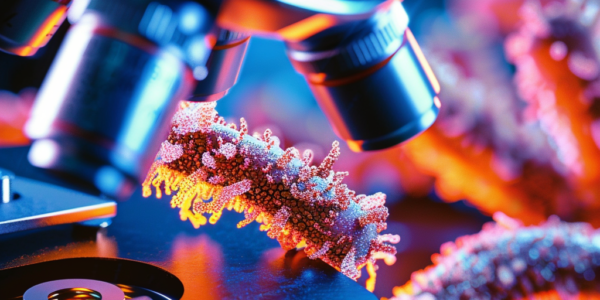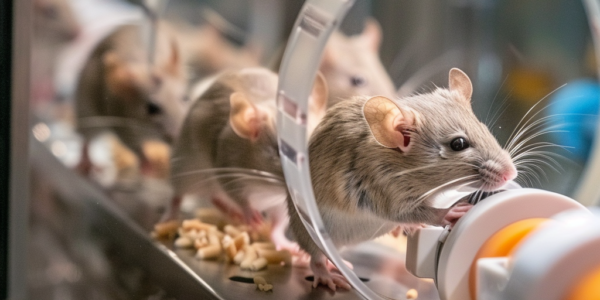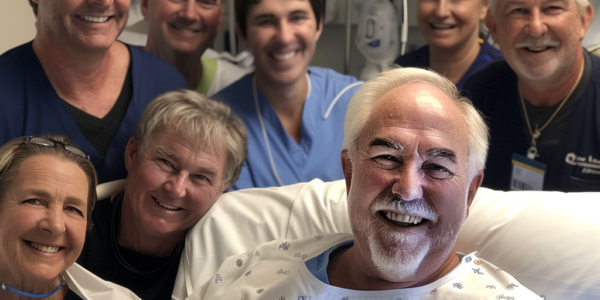Study Shows Investing in Tuberculosis Prevention is a Sound Economic Decision
Investing in tuberculosis screening and preventive treatment can yield significant health and economic benefits, with a potential return of up to US$ 39 for every dollar invested. The study’s findings provide a compelling investment case for scaling up TB screening and preventive treatment, aligning with the targets set at the 2023 UN High-Level Meeting on TB. The study aims to empower countries to advocate for increased resources and support the expansion of TB control and prevention efforts, serving as a blueprint for similar settings with comparable epidemiological contexts.
5 Simple Lifestyle Tweaks to Stimulate the Brain and Improve Memory
Discover five simple lifestyle tweaks recommended by neuroscientist Rachelle Summers to stimulate the brain and improve memory. From getting enough sleep to practicing mindfulness and engaging in aerobic exercise, these tips can help protect brain health and reduce the risk of developing Alzheimer’s disease and dementia.
Link between Pesticides and Parkinson’s Disease
Revelations about the link between pesticides and Parkinson’s disease highlight the need for proactive measures to safeguard neurological well-being. New research funded by the Michael J. Fox Foundation has identified three additional pesticides associated with an increased risk of Parkinson’s disease, emphasizing the urgent need for collective action to address the impact of pesticide usage on human health.
Study Shows Minocycline Did Not Slow Vision Loss in Dry AMD
A recent clinical study at the National Eye Institute (NEI) has shown that the antibiotic minocycline did not slow vision loss or expansion of geographic atrophy in people with dry age-related macular degeneration (AMD). The study aimed to test whether inhibiting microglia with minocycline might help slow geographic atrophy expansion and its corresponding vision loss, but found no difference in geographic atrophy expansion rate or vision loss with minocycline. This study provides valuable insights into potential treatments for dry AMD and the role of inflammation in the progression of the disease.
New Bacteria Found in 50% of Colon Cancers, Study Reveals
Groundbreaking study in Nature reveals new bacteria found in 50% of colon cancers, with potential implications for treatment and screening. Colon cancer rates among younger individuals have nearly doubled, prompting concern and speculation about the role of this bacteria in the surge. This discovery offers potential for targeted treatments and improved screening protocols to combat the growing threat of colon cancer.
Man with Rare Disorder Sees ‘Demonic’ Faces in Terrifying Phenomenon
A 59-year-old man from Tennessee has been diagnosed with prosopometamorphopsia (PMO), a rare neurological disorder that causes distorted facial perception. Researchers at Dartmouth College utilized digital technology to create representations of the warped faces perceived by the individual, offering valuable insights into the visual distortions associated with PMO. With fewer than 100 published case reports of PMO, the condition remains poorly understood, highlighting the need for further research to unravel its complexities.
Study Shows Ketogenic Diet Delays Alzheimer’s-Related Memory Decline in Mice
A recent study from the University of California, Davis, has found that a ketogenic diet can significantly delay Alzheimer’s-related memory decline in mice. The research highlights the potential role of beta-hydroxybutyrate (BHB) in preserving cognitive function and suggests gender-specific benefits for women at higher risk of Alzheimer’s. The findings open up new avenues for research into healthy aging and Alzheimer’s prevention.
Man Declared Brain Dead from Ingrown Hair Makes Miraculous Recovery
Man declared brain dead after developing blood poisoning from ingrown hair miraculously recovers. Sepsis caused by attempting to remove ingrown hair led to medically induced coma and open heart surgery. Family documents fight for life on GoFundMe and TikTok.
US Drug Overdoses Reach Record High in 2022
Drug overdoses in the United States have hit a new record high, with almost 108,000 Americans dying from overdoses in 2022. The final federal figures released by the U.S. Centers for Disease Control and Prevention (CDC) show a continuous rise in overdose deaths over the last two decades, making it the worst overdose epidemic in American history. The alarming trend calls for continued attention and efforts to address the underlying issues contributing to this epidemic.
Man recovering well after receiving genetically modified pig kidney
62-year-old Rick Slayman received a genetically modified pig kidney in a pioneering transplant surgery, marking a major milestone in organ availability. With a chronic shortage of human donor organs, animal donors may provide hope for thousands in need of transplants. The special pig kidney was provided by eGenesis of Cambridge, Massachusetts, and Mr. Slayman’s recovery is being closely monitored as he continues to take anti-rejection drugs.










